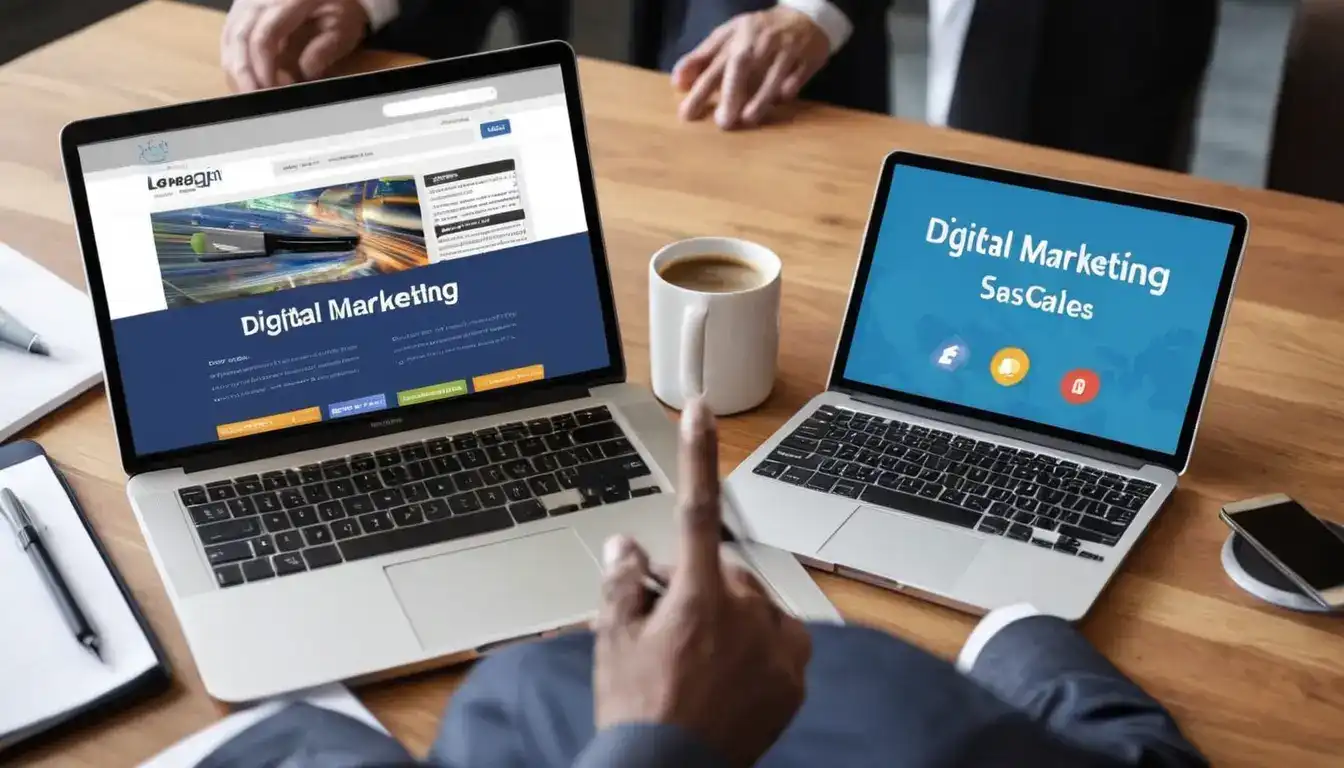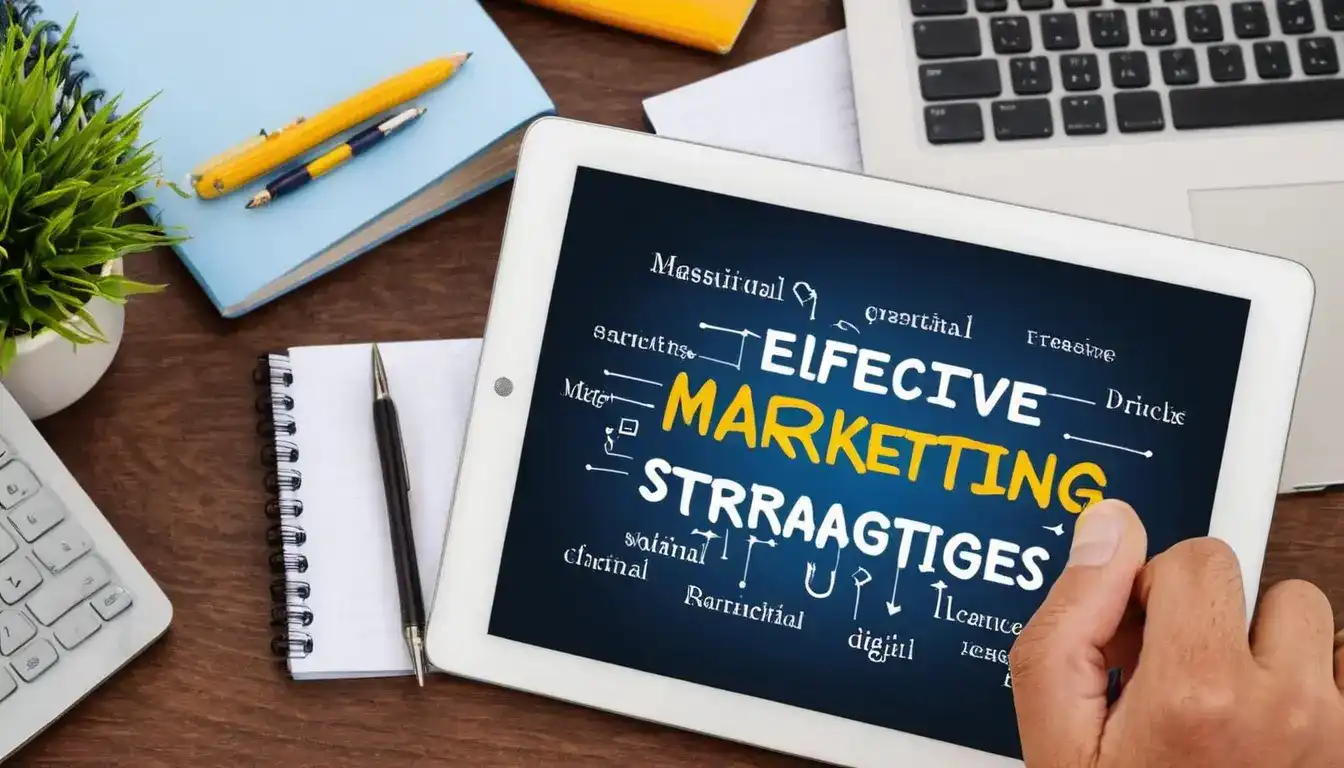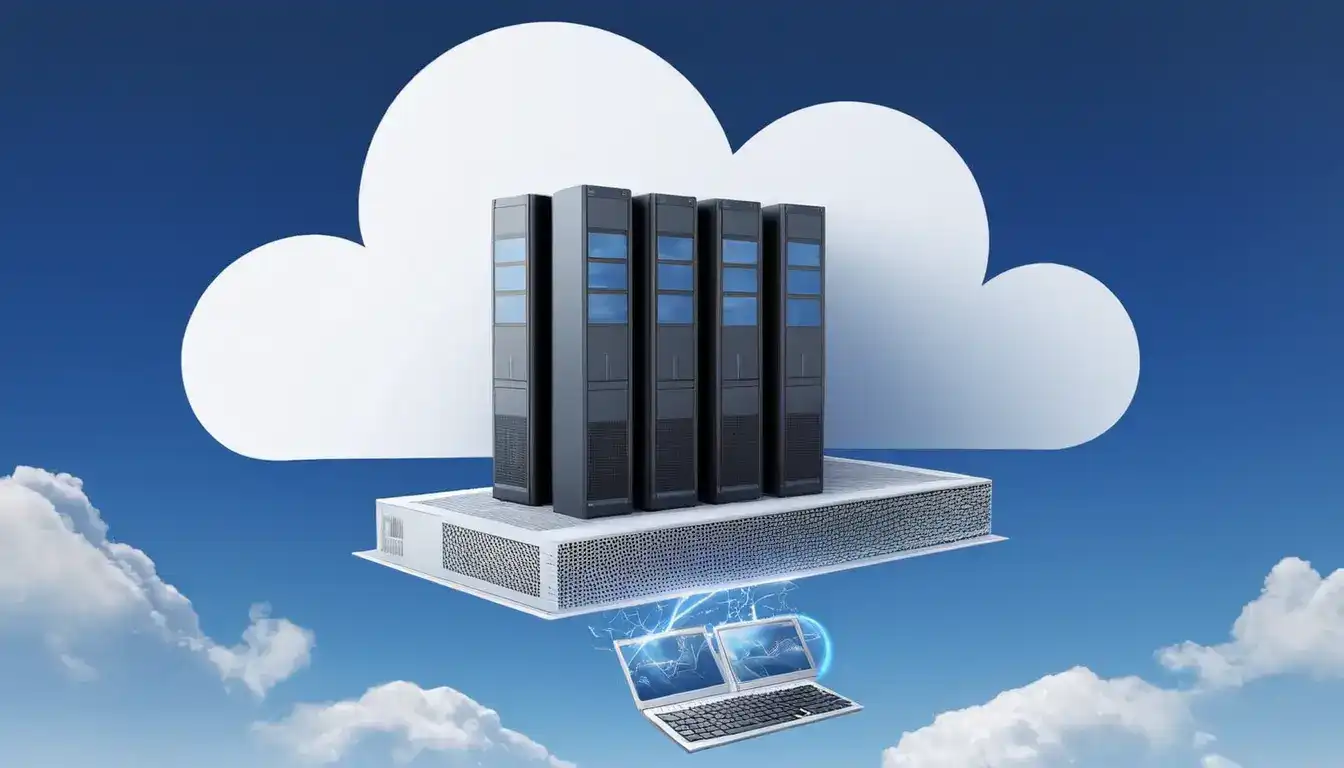Digital Economy Trends and Implications for the Job Market
Emily Willis

Photo: Digital Economy Trends and Implications for the Job Market
Introduction
The digital economy is transforming the world at an unprecedented pace, influencing various aspects of life, including the job market. As technology continues to advance, it creates new opportunities and challenges for workers and businesses alike. This article explores the latest trends in the digital economy and their implications for the job market, offering insights on how individuals and organizations can adapt to thrive in this evolving landscape.
1. Rise of Remote Work
One of the most significant trends in the digital economy is the rise of remote work. Enabled by advancements in communication and collaboration technologies, remote work has become a viable option for many professionals. Key implications of this trend include:
- Flexibility: Remote work offers greater flexibility, allowing employees to work from anywhere, which can lead to improved work-life balance.
- Access to a Global Talent Pool: Employers can hire talent from around the world, broadening the pool of potential candidates and bringing diverse perspectives to their teams.
- Reduced Overhead Costs: Businesses can save on office space and other related expenses by allowing employees to work remotely.
2. Gig Economy Growth
The gig economy, characterized by short-term contracts and freelance work, is growing rapidly. Platforms like Uber, Upwork, and Fiverr have made it easier for individuals to offer their services and for businesses to find flexible labor. The implications of the gig economy include:
- Increased Job Opportunities: The gig economy provides numerous opportunities for people to earn income, particularly for those who may not fit into traditional employment models.
- Flexible Work Arrangements: Freelancers can choose their projects and work schedules, offering more control over their work-life balance.
- Income Instability: Gig workers often face uncertainty regarding their income and lack benefits such as health insurance and retirement plans.
3. Automation and Artificial Intelligence
Automation and artificial intelligence (AI) are revolutionizing various industries, from manufacturing to finance. These technologies can perform tasks more efficiently and accurately than humans, leading to significant changes in the job market:
- Job Displacement: Automation may lead to job losses in certain sectors, particularly for routine and repetitive tasks.
- New Job Creation: While some jobs are displaced, new roles in AI development, data analysis, and other tech-related fields are emerging.
- Skill Shift: There is an increasing demand for workers with skills in technology, data science, and AI, necessitating continuous learning and upskilling.
4. E-commerce Expansion
The growth of e-commerce has been accelerated by the digital economy, changing the way consumers shop and businesses operate. This trend has several implications for the job market:
- Increased Demand for Logistics and Supply Chain Professionals: The rise in online shopping creates a need for workers in logistics, warehousing, and delivery services.
- Digital Marketing Roles: Businesses need digital marketing experts to help them reach and engage customers online.
- Customer Service Jobs: With more transactions happening online, there is a growing need for customer support roles to handle inquiries and resolve issues.
5. Emphasis on Cybersecurity
As more business activities move online, the importance of cybersecurity has grown. Protecting data and systems from cyber threats is critical, leading to a surge in demand for cybersecurity professionals:
- Growing Job Market: The need for cybersecurity experts is increasing, offering numerous career opportunities in this field.
- Continuous Learning: Cybersecurity is a dynamic field that requires professionals to stay updated with the latest threats and technologies.
- High Earning Potential: Due to the high demand and specialized skills required, cybersecurity roles often come with attractive salaries and benefits.
6. Digital Skills and Lifelong Learning
In the digital economy, having the right skills is essential. The rapid pace of technological change means that workers need to continuously update their skills to remain competitive. This trend highlights several key points:
- Importance of Digital Literacy: Basic digital skills are now a prerequisite for many jobs, making digital literacy crucial for career success.
- Focus on Lifelong Learning: Continuous learning and professional development are necessary to keep up with technological advancements.
- Online Learning Platforms: The rise of online education platforms like Coursera, Udemy, and LinkedIn Learning makes it easier for individuals to acquire new skills and knowledge.
7. Changes in Traditional Industries
Traditional industries such as manufacturing, healthcare, and finance are being transformed by digital technologies. These changes have several implications for the job market:
- Manufacturing: Automation and advanced manufacturing technologies are creating more efficient production processes but also reducing the need for manual labor.
- Healthcare: Telemedicine and digital health tools are changing how healthcare services are delivered, leading to new roles in health IT and telehealth.
- Finance: Fintech innovations are revolutionizing financial services, creating demand for professionals in blockchain, digital payments, and financial analysis.
Conclusion
The digital economy is reshaping the job market in profound ways, offering both opportunities and challenges. Trends such as remote work, the gig economy, automation, e-commerce, cybersecurity, digital skills, and changes in traditional industries are driving this transformation. To thrive in this new landscape, individuals and organizations must adapt by embracing flexibility, investing in continuous learning, and staying abreast of technological advancements. By doing so, they can harness the potential of the digital economy and navigate its complexities successfully.
Latest ✨
View Allenduring appeal of video games, highlighting their ability to transport players to fantastical realms, challenge their minds, and foster connections with others. It explores the magic of immersive worlds, the vast array of genres available, and the social power of gaming.
Emily Willis
Choosing the right cloud computing platform is essential for business success. Factors to consider include assessing business needs, evaluating cost and pricing models, analyzing performance and reliability, examining security and compliance, considering scalability and flexibility, evaluating support and customer service, assessing integration and compatibility, and reviewing user experience and ease of use.
Emily Willis
The music industry has undergone significant changes due to technological advancements, social media, and a growing global audience. The shift from analog to digital formats, the rise of streaming services, and the impact of social media on artist-fan relationships are explored.
Emily Willis
Stress is a natural part of life, but how we handle it can greatly impact our well-being. This article provides practical tips for managing stress in daily life, including understanding common causes of stress, effective strategies for coping, and cognitive techniques to reduce stress. By incorporating stress management techniques into your daily routine, you can improve your health, mental well-being, relationships, and productivity. Remember, managing stress is about developing resilience and coping skills to navigate life's challenges. Start implementing these techniques today to lead a more balanced and fulfilling life.
Emily Willis
Business
View All
August 4, 2024
Leveraging Digital Marketing to Boost Business SalesDigital marketing is crucial for businesses in the digital age to boost sales and stay competitive. Strategies such as SEO, PPC advertising, social media marketing, email marketing, and content marketing can help reach target audiences, build brand awareness, and drive conversions.
Emily Willis

August 4, 2024
Adapting to Changing Consumer Behavior and Evolving Shopping TrendsThe way we shop has changed dramatically, with consumers having unique needs and preferences. Businesses must understand and adapt to these changes to stay afloat.
Emily Willis

August 4, 2024
Effective Digital Marketing Strategies for MSMEs: Tips and Tricks to KnowSmall and medium-sized enterprises (SMEs) face challenges and opportunities in digital marketing. By building a strong online presence, leveraging social media, implementing email marketing, investing in PPC advertising, and analyzing performance, MSMEs can attract more customers and achieve growth. Embracing these strategies can help MSMEs succeed in the competitive digital landscape.
Emily Willis
Economy
View AllBest Secured Loans for Debt Consolidation with Low Interest Rates | Compare Top Lenders & Save Money on Monthly Payments
Read MoreCentral banks are facing unique challenges in the current economic landscape, including rising inflation, geopolitical tensions, and lingering effects of the pandemic. They have a set of tools at their disposal, such as monetary policy, open market operations, and reserve requirements, to influence the economy.
Read Morechallenges and opportunities presented by economic uncertainty and explores strategies that governments and businesses can implement to mitigate risks, ensure stability, and pave the way for future success.
Read MoreEntertainment
View All
August 5, 2024
Arts Education's Importance: Nurturing Creativity and Fostering ExpressionArts education is often overlooked in a world focused on standardized tests and STEM subjects, but it plays a vital role in nurturing creativity, self-expression, and essential skills in students. Arts education allows students to unleash creativity, build confidence, improve communication and collaboration skills, develop critical thinking and problem-solving abilities, increase cultural awareness and appreciation, and enhance emotional intelligence.
Emily Willis

August 4, 2024
Exploring Virtual Reality (VR) in Entertainment: Future Applications and DevelopmentsVirtual Reality (VR) technology is revolutionizing the entertainment industry by providing immersive and interactive experiences that transform audience interaction with content. VR creates simulated environments that allow users to engage with virtual worlds, characters, and narratives in ways that traditional media cannot.
Emily Willis

August 4, 2024
The Latest Music Trends, Artists Influencing Pop Culture, and How Digital Platforms Facilitate the Distribution of Music GloballyThe music industry is constantly changing due to consumer preferences, technology, and the influence of artists. Digital platforms have revolutionized music creation, distribution, and consumption, leading to genre fusion, the rise of independent artists, and collaborative projects. Influential artists like Billie Eilish, BTS, and Taylor Swift have shaped pop culture globally. Streaming services, social media, and direct-to-fan engagement have transformed music distribution. Digital platforms also promote cultural diversity and inclusivity, expand markets and revenue, and drive technological advancements. The industry is also focusing on sustainability and ethical practices. To succeed in the future, stakeholders must embrace digital transformation and champion inclusivity.
Emily Willis
Health
View AllIn today's fast-paced world, stress, anxiety, and depression are common mental health challenges that can affect our overall well-being. Understanding these issues and taking steps to manage them is important. Strategies for managing mental health include prioritizing self-care, practicing mindfulness and relaxation techniques, challenging negative thoughts, connecting with others, developing healthy coping mechanisms, managing time effectively, and seeking professional help when needed.
Emily Willis
Preventive healthcare focuses on strategies to prevent disease and maintain well-being, rather than just treating illnesses after they arise. It helps identify risk factors early on, allowing for interventions that can prevent or delay the onset of chronic diseases.
Emily Willis
our minds are often overwhelmed with information and stimuli, leading to stress and anxiety. Mindfulness and meditation offer tools to cultivate inner peace and well-being. Mindfulness involves being present in the moment without judgment, while meditation involves focusing attention on an object or thought.
Emily Willis
Trending 🔥
View All
1
2
3
4
6
7
8
9
Sports
View AllAugust 5, 2024
The Future of Sports: Anticipating Trends, Embracing Innovation, Shaping a New Era
Read MoreAugust 5, 2024
Inclusive Playing Field: Creating a Welcoming and Accessible Sports Environment
Read MoreTechnology
View All
August 5, 2024
The Future of IoT and Its Potential to Improve Quality of Life
The Internet of Things (IoT) is a transformative force that is revolutionizing daily life by connecting devices and enabling them to exchange data autonomously. The growth trajectory of IoT is projected to surpass 75 billion connected devices by 2025, impacting various sectors such as healthcare, smart cities, agriculture, and home automation.

August 5, 2024
Ethical Challenges in AI Development and Use
Artificial Intelligence (AI) has evolved rapidly from science fiction to reality, offering immense potential but also presenting significant ethical challenges.

August 4, 2024
The Rise of Blockchain Technology: Applications Beyond Cryptocurrency
Blockchain technology, initially associated with cryptocurrencies, has expanded to have diverse applications across industries. It is a decentralized digital ledger that ensures secure, transparent, and immutable transactions. Beyond cryptocurrency, blockchain has been applied to supply chain management, healthcare, voting systems, smart contracts, digital identity verification, real estate transactions, and supply chain finance. Future trends include enhancing interoperability, addressing scalability issues, and exploring regulatory frameworks. Overall, blockchain technology has the potential to revolutionize various sectors by enhancing efficiency, security, and trust in operations.

August 5, 2024
How to Protect Yourself from Cyber Security Threats in the Digital Age
The digital world has become an integral part of our lives, offering convenience, information, and connection. However, with this convenience comes an increased risk of cyber security threats. From identity theft to financial loss, the consequences of falling victim to a cyberattack can be devastating. Fortunately, by understanding the common threats and implementing effective protection measures, you can significantly reduce your risk.





















